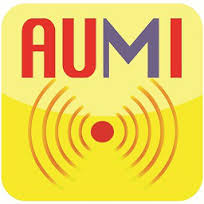 An AUMI book is in the works!
An AUMI book is in the works!
Call for Book Chapters of All Shapes and Sizes! Improvising across Abilities: Pauline Oliveros and the Adaptive Use Musical Instrument
Share your research, experiences, and stories about the Adaptive Use Musical Instrument (AUMI) in this collaborative volume.
Composer, musician, and humanitarian, Pauline Oliveros (1932-2016), was renowned for her innovations in composition, sound technology, research, philosophy and practices of listening and feminist and environmental humanitarian projects. Less known is her work on all-ability improvisation through the Adaptive Use Musical Instrument (AUMI) Project that seeks to develop low-cost, user-friendly musical interfaces intended to be playable by everyone. Originally developed to facilitate autonomous musical improvisation by people with a narrow range of intentional mobility, the potential for the instrument to adapt to players across abilities of all kinds, including differences in cognitive processing, sensory perception, and neurodiversity, soon became apparent as players of the instrument invented new uses and provided input on desired improvements.
Oliveros saw AUMI as important within the continuum of her life’s work, and listed it as her primary research throughout her final years, even as she continued to compose major works and perform internationally. The AUMI Project beautifully carries forward the goals stated in her “Sonic Meditations” [1971/75] in which “no special skills were necessary,” all participants are equally valued, and of which the anticipated benefits of the group practice included gaining “greater awareness and sensitivity to each other.” The radical conclusion—that “Music is a welcome by-product of this activity”—continues to drive the AUMI Research Project. What is the potential of all-ability sounding and listening in AUMI improvisation to transform social relations and discover new modes of inclusive community practice? And what does that sound like?
Improvising Across Abilities: Pauline Oliveros and the Adaptive Use Musical Instrument is a book-length collaborative volume that will be shaped by its contributors, much as AUMI improvisation is shaped by movements of every body of every person who plays it. As AUMI improvisers are well aware, the app/interface uses camera tracking to follow body movements– small, large, wide, narrow, fast, slow–in order to trigger sounds from hundreds of possibilities.
“It isn’t the AUMI software that is important, it’s what people do with it.” Pauline Oliveros
AUMI has been used by artists, students, teachers, music therapists, occupational therapists, and mixed ability communities and communities of disability for over a decade. This book aims to learn and share what it is that people do with it.
This is a call for AUMI users of all abilities and occupations to submit proposals with a title, brief bio of author/co-authors, and 500-word description of what you would like to write. We would like to encourage co-authored chapters–for example, a piece about AUMI at a nursing home might take the form of co-authorship of staff, volunteers, residents, and/or family members. Single-authored chapters are also welcome. We especially seek pieces by authors and coauthors who are people with disabilities.
Abstracts (500 word limit), due July 1, 2018.
Visit the AUMI Call For Chapters page for full details and submission instructions.







